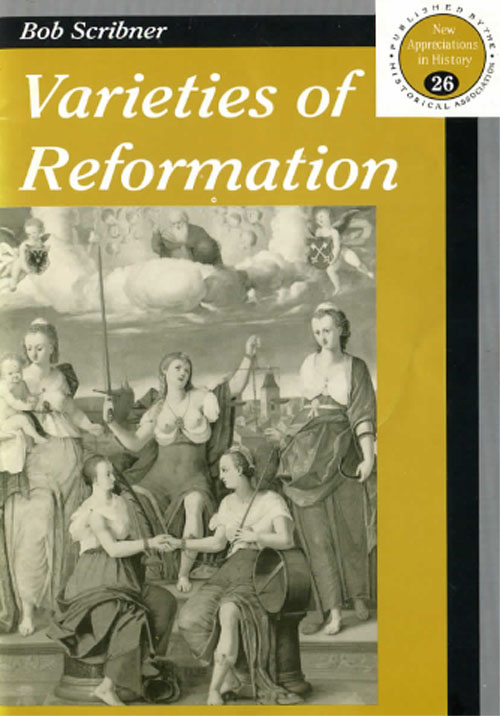Varieties of Reformation
Classic Pamphlet

The most significant change to have occurred in our view of the Reformation in recent years is the growing acknowledgement of historians that it was no unitary phenomenon whose triumph was assured and inevitable. What we refer to in short-hand as ‘the' Reformation was a many-sided affair which began with the ‘evangelical movements' in Germany in the 1520s and subsequently spread in many variants to other countries. The initial evangelical movements were a matter of intense religious ferment and opened up many possibilities for reform, religious, social and political. In the first few years diverse religious viewpoints found public expression- ethical, mystical, millennialist, anticlerical and social-critical, to name but a few- and there were many different notions in circulation about the shape of the reform of religion most people recognized as necessary and desirable. The emphasis of newer Reformation research, therefore, is on variety rather than uniformity.
There are two ways we might approach the perception of variety. First, there was the issue of how reform was best to be achieved- how far and how fast it should proceed, and how to force the pace should it not be carried through with sufficient urgency. This issue was posed in Wittenberg at the very outset, as Carlstadt and Swilling wet a heady pace of reform in the liturgy, in clerical lifestyle and in religious institutions. The secular authorities, fearing social unrest, drew back and were supported by Luther, whose instinctive conservatism cautioned him to a slower rhythm of change. Yet the headlong rush to dismantle the old church had scarcely been checked when a new and more radicalism of reform to the often confused and confusing ideas and reactions of Luther, whose responses were to set the tone of the incipient Lutheran reformation and determine its conservative character. I do not want to explore this particular line of approach here, although there is still a great deal to be said on the subject.
This resource is FREE for Historian HA Members.
Non HA Members can get instant access for £3.49

